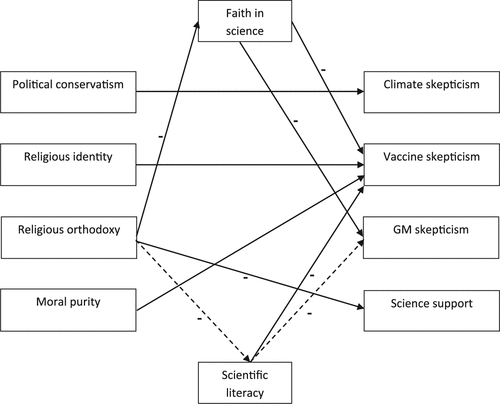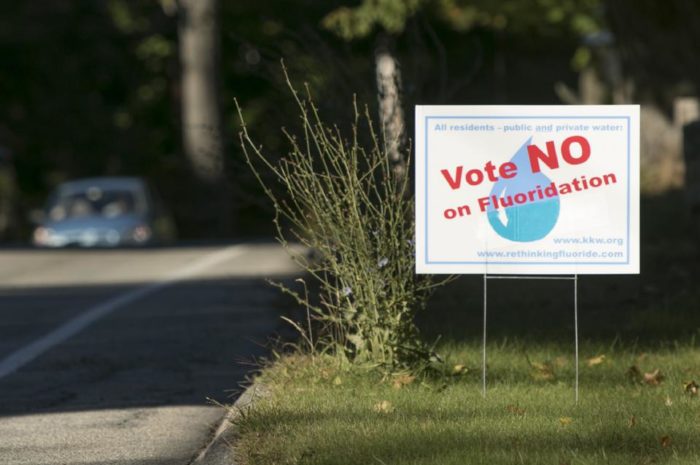 “There is a cult of ignorance in the United States, and there has always been. The strain of anti-intellectualism has been a constant thread winding its way through our political and cultural life, nurtured by the false notion that democracy means that ‘my ignorance is just as good as your knowledge.”
“There is a cult of ignorance in the United States, and there has always been. The strain of anti-intellectualism has been a constant thread winding its way through our political and cultural life, nurtured by the false notion that democracy means that ‘my ignorance is just as good as your knowledge.”
― Issac Asimov
As science-communicators and skeptics we are trying to understand the phenomenon of rejection of evidence, logic, and the consensus of expert scientific opinion. There is, of course, no one explanation – complex psychological phenomena are likely to be multifactorial. Decades ago the blame was placed mostly on scientific illiteracy, a knowledge deficit problem, and the prescription was science education. Many studies over the last 20 years or so have found a host of factors – including moral purity, religious identity, ideology, political identity, intuitive (as opposed to analytical) thinking style, and a tendency toward conspiratorial thinking. And yes, knowledge deficit also plays a role. These many factors contribute to varying degrees on different issues and with different groups. They are also not independent variables, as they interact with each other. Religious and political identity, for example, may be partially linked, and may contribute to a desire for moral purity.
Also, all this is just one layer, mostly focused on explaining the motivation for rejecting science. The process of rejection involves motivated reasoning, the Dunning-Kruger effect, and a host of self-reinforcing cognitive biases, such as confirmation bias. Shameless plug – for a full discussion of cognitive biases and related topics, see my book.
So let’s add one more concept into the mix: anti-intellectualism – the generalized mistrust of intellectuals and experts. This leads people to a contrarian position. They may consider themselves skeptics, but they do not primarily hold positions on scientific issues because of the evidence, but mainly because it is contrary to the mainstream or consensus opinion. If those elite experts claim it, then it must be wrong, so I will believe the opposite. This is distinct from conspiracy thinking, although there is a relationship. As an aside, what the evidence here shows is that some people believe in most or all conspiracies because they are conspiracy theorists. Others believe only in some conspiracies opportunistically, because it’s necessary to maintain a position they hold for other reasons. There is therefore bound to be a lot of overlap between anti-intellectualism and holding one or more conspiracies, but they are not the same thing.
Continue Reading »
 Public controversy over the safety of fluoridation programs continues, in some towns leading to successful resistance to water fluoridation. As a public health issue, the scientific evidence for risks vs benefits should be at the core of this debate. A new study sheds significant light on this question.
Public controversy over the safety of fluoridation programs continues, in some towns leading to successful resistance to water fluoridation. As a public health issue, the scientific evidence for risks vs benefits should be at the core of this debate. A new study sheds significant light on this question.
 In my upcoming book, which I will now shamelessly plug – The Skeptics Guide to the Future (release date Sept 27th,
In my upcoming book, which I will now shamelessly plug – The Skeptics Guide to the Future (release date Sept 27th,  By now you have probably gotten the memo – the world is drowning in plastic, and yet we continue to produce and throw away prodigious amounts every year. The world produces over
By now you have probably gotten the memo – the world is drowning in plastic, and yet we continue to produce and throw away prodigious amounts every year. The world produces over  European Union (EU) agricultural scientists are in a bit of a pickle. I’m not sure to what extent it is one of their own making or how much it was imposed upon them by politics and public opinion, but they are now confronting a dilemma they at least ignored if not helped to create. The question is – how best to achieve sustainable agriculture in a world with a growing population? This problem is made more difficult by the fact that we already tapped the most efficient arable land, so any extension of agricultural land will necessarily push into less and less efficient land with greater displacements of populations and natural ecosystems.
European Union (EU) agricultural scientists are in a bit of a pickle. I’m not sure to what extent it is one of their own making or how much it was imposed upon them by politics and public opinion, but they are now confronting a dilemma they at least ignored if not helped to create. The question is – how best to achieve sustainable agriculture in a world with a growing population? This problem is made more difficult by the fact that we already tapped the most efficient arable land, so any extension of agricultural land will necessarily push into less and less efficient land with greater displacements of populations and natural ecosystems. A recent commentary on Forbes advises:
A recent commentary on Forbes advises:  “There is a cult of ignorance in the United States, and there has always been. The strain of anti-intellectualism has been a constant thread winding its way through our political and cultural life, nurtured by the false notion that democracy means that ‘my ignorance is just as good as your knowledge.”
“There is a cult of ignorance in the United States, and there has always been. The strain of anti-intellectualism has been a constant thread winding its way through our political and cultural life, nurtured by the false notion that democracy means that ‘my ignorance is just as good as your knowledge.” Being involved in skeptical activism for over two decades does provide some perspective. One phenomenon I have noticed is that most pseudosciences and weird belief systems are, at their core, the same. Sure, the details vary, but the underlying errors in logic and thinking are the same. Essentially people make the same mistakes over and over again.
Being involved in skeptical activism for over two decades does provide some perspective. One phenomenon I have noticed is that most pseudosciences and weird belief systems are, at their core, the same. Sure, the details vary, but the underlying errors in logic and thinking are the same. Essentially people make the same mistakes over and over again. This aphorism has been around since about 1600,
This aphorism has been around since about 1600,  Aflatoxin is a serious food contaminant that causes both acute and chronic illness in animals and humans.
Aflatoxin is a serious food contaminant that causes both acute and chronic illness in animals and humans. 




